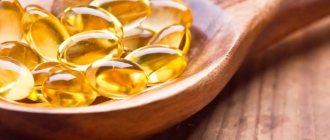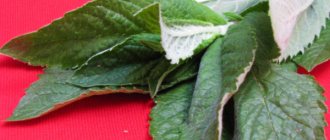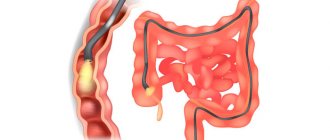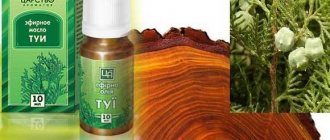Source of linseed oil serve as flax seeds, a plant cultivated annually and of great economic importance.
Flaxseeds consist of 30-40% fatty oil. The cold pressing procedure ensures that 18-20% of the oil is obtained from the original raw material. Seeds that have undergone cold processing (meal) are hot pressed, yielding another 5-7% of oil, the scope of which will be only for technical needs.
But cold-pressed products are actively used as:
- dietary element;
- in pharmaceutical production - as raw materials for the production of dietary supplements and a liquid medium in which the active ingredients of medications are diluted;
- component of paint and varnish products on a natural basis;
- binder for environmentally friendly polymer materials.
Unrefined flaxseed oil, yellowish in color, has a special aroma and a unique, slightly bitter taste.
Detoxification and holistic wellness
Flaxseed oil has become famous as a means of “burning” excess weight.
It is not for nothing that flaxseed oil has become famous as a means of “burning” excess weight. It’s easy to guess why, because the active substances contained in the product accelerate the process of removing harmful waste from the body and toxins accumulated in it.
Saturating the body with beneficial amino acids and minerals, without stress to the digestive and nervous systems, and without harm to well-being, flaxseed oil will begin to rid you of all harmful accumulations from the first day of use.
Round No. 5 Benefits for children
Fish oil is a constant childhood companion for those who were lucky enough to be born before the 90s. Why is it so important for children to take this supplement?
- It ensures proper skeletal growth through vitamin D;
- reduces the risk of diabetes and obesity;
- the vitamin A it contains is essential for eye health;
- Omega-3 increases attention and concentration, helps to quickly absorb new knowledge;
- reduces the risk of rickets.
But flaxseed oil, which is fashionable today, was previously used exclusively as... an antiparasitic agent.
Today, both fish oil and flaxseed oil can successfully replace properly selected vitamin and mineral complexes.
But if you still want to give your child additional Omega-3 acids, then opt for children's chewable capsules - they are free of heavy metals, enriched with vitamin D and calcium, and also have a pleasant sweet taste and resemble gelatin bears.
What is better for a child - fish oil or flaxseed oil? Our favorite in this round is fish oil .
Main Product Features
Often people are distrustful of the benefits of oils for weight loss, and associate them with something necessarily fatty and harmful. This is a very big misconception.
Although there is no guarantee that the body will instantly respond to taking flaxseed oil, this product is a storehouse of minerals, vitamins and amino acids.
Proof of this can be numerous studies by scientists who have confirmed that consuming flaxseed oil is a direct path to rejuvenation of the body.
Vitamins of group “A” contained in flax seeds are the best companions of female beauty, making hair, eyebrows and eyelashes velvety, nails strong, and improving skin tone. Vitamin “F” will transform and give elasticity to your skin, improve the regeneration of its cells.
A few tablespoons of flaxseed oil can satisfy an adult’s daily requirement of vitamins “E” and “B”. Potassium, which flax is so rich in, will improve the functioning of the cardiovascular system, increase brain activity and prevent the occurrence of edema.
Round #1 Benefit
Which is better - fish oil or flaxseed oil in terms of Omega-3 content? The human body cannot produce any of the above acids (EPA, DHA and ALA) on its own. So, taking any of these supplements will have a positive effect on your health in any case.
But if we move on to specific numbers:
- 100 grams of fish oil contains about 30 grams of EPA/DHA;
- 100 g of flaxseed oil contains about 70 g of ALA;
- If we take into account the acid conversion coefficient, it turns out that from 100 g of flaxseed oil a person receives only 4.2 g of fully digestible DHA/EPA, which is 7 times less than the amount of acids obtained from fish.
Fish oil wins this round in his favor!
What to give preference when choosing linseed oil?
Flaxseed oil should not contain impurities.
Not every modern manufacturer can boast of having a high-quality product. When purchasing, you need to pay attention to a number of the following recommendations:
- if the oil has a tart and bitter taste, you should stop using it;
- high quality flax seed oil has a pleasant taste;
- a cold-pressed product usually has a yellow and golden color;
- sold in tinted glass containers;
- must not contain impurities.
Do not forget to check the production and storage times, because a spoiled product will not be beneficial. Unopened oil can be stored for 1 year, after opening the container for no more than a month.
For more information about flaxseed oil for the intestines, see the thematic video:
Interaction of flax oil with medications
Since flaxseed oil is often drunk for certain health problems, a reasonable question arises whether it can be taken together with medications. The product has a fairly strong effect, so there are a number of products with which it cannot be used.
- Avoid taking flax seed oil and blood thinning medications at the same time. The fact is that flaxseed oil has a similar effect. Taking both the product and medications together may lead to bleeding.
- It is recommended to choose only one option for reducing blood pressure in case of hypertension: either oil or appropriate medications.
- It is prohibited to take flaxseed oil while on hormonal therapy or taking contraceptives.
What magical properties of flax can begin to relieve you of excess weight?
Omega-3 and omega-6 fatty acids, which flax oil is rich in, accelerate the breakdown of accumulated fats.
The previously mentioned omega-3 and omega-6 fatty acids, which flax oil is rich in, penetrate the human body, speed up metabolism and break down accumulated kilograms. Besides:
- the lower intestines are completely rid of toxins and harmful substances;
- vascular regeneration occurs;
- relieves diseases associated with the colon, such as constipation and hemorrhoids;
- improves skin tone, preventing the occurrence of stretch marks and sagging.
The most effective is considered to be the use of flax oil in cold form, because during heat treatment many beneficial properties disappear. Replacing sunflower and olive oil with flaxseed oil when dressing salads will not only make you look like a skilled cook, but will also bring serious health benefits.
Flax seed oil also goes well with dairy products, fruits and warm cereals.
How to use in cooking
We mentioned earlier that flax seed oil can be consumed by adding it to various dishes. Let's now take a closer look at how to cook with it. It is important to know that flaxseed oil cannot be heated too much, because the polyunsaturated acids for which it is valuable are destroyed under the influence of high temperatures and turn into carcinogens hazardous to health. Accordingly, the product is not suitable for frying and baking. But it can be added to salads, porridges, and made into dish dressings.
Reception mode
Flaxseed oil is great for constipation.
Therapeutic procedures using flaxseed oil begin in the morning. Before meals, take a teaspoon of oil and wait 10-15 minutes before eating breakfast.
In the evening, the best way to consume it is to take a teaspoon a few hours after dinner.
This process can be continued for up to two weeks, and then replace the teaspoon with a tablespoon, increasing the intake. After two months have passed since the start of taking the oil, we take a two to three week break, and if there are positive changes in the body, we continue to use it.
Popular recipes in cosmetology
The properties of linseed oil allow it to be used in the field of external beauty. It is not necessary to take flaxseed oil internally; it can be used as a cosmetic product, added to masks and shampoos. Let's see which recipes are widely used in cosmetology and in what cases.
Help with dry skin. For this problem, it is recommended to make a mask from the oil. The recipe is simple: 2 tbsp. l. product, 1 tbsp. l. thick sour cream and 20 g chopped cucumber. All components are mixed until smooth and applied to the face for 15–20 minutes, after which they are washed off with warm water. This mask can tone, nourish and deeply moisturize the skin.
Help for oily skin. Flaxseed oil can be a component of a mask that allows you to remove oily shine, cleanse clogged pores, and reduce the intensity of the sebaceous glands. The recipe in this case will be as follows: 1 tbsp. l. butter, 1 tbsp. l. flour, 1 tsp. lemon juice and 3 tbsp. l. low-fat kefir. It is recommended to keep the mask on your face for at least 15–20 minutes, and wash it off with warm water.
Help with hair problems. Dry, brittle, split ends, lifeless hair is a problem that many struggle with. And flax seed oil has found its application in this fight. It is slightly heated in a water bath, and then carefully applied to the scalp and along the entire length of the hair. To maintain the thermal effect, it is better to wear a special cap. If you don’t have one, you can use cling film: it gives a similar result. The oil should be kept on the hair for 6–8 hours, then washed off with shampoo.
Risks of consuming flaxseed oil
During pregnancy and lactation, it is recommended to consult with your doctor about the use of flaxseed oil.
If you suffer from hepatitis, gallbladder diseases and pancreatitis, then you should stop taking flaxseed oil until you consult a specialist.
Flax oil is incompatible with taking hormonal medications and antibiotics. Prohibited for children of preschool age.
During pregnancy and lactation, use is not strictly prohibited, but it is recommended to consult with your doctor.
Flax oil is very useful and can significantly improve the well-being and appearance of the person taking it. But do not forget that any useful product in excess can be harmful.
Answers on questions
00:00
Alexander Sergeevich Trukhmanov , Doctor of Medical Sciences, Professor:
– I see you have questions. Please answer them.
Elena Ivanovna Vovk , candidate of medical sciences, associate professor:
Question: Sediment in the gallbladder, constrictions and kinks in young patients. What should I do?
I said this in a nutshell at the very beginning. In young patients, of course, we are talking less about high cholesterol levels, but mainly about very serious disorders of gallbladder motility, which lead to a high rate of cholesterol saturation.
But there is some pathomorphosis here. Yes, motor impairment is obvious. But the algorithm will be exactly the same. As long as there are no stones, we have the opportunity to do exactly what I talked about in my speech - categorically and sharply limit the fat load in the diet. Start taking choleretics.
If there is biliary dyskinesia, this is a completely separate issue (this needs to be corrected by a gastroenterologist). But from the point of view of the functionality of nutrition, nutraceutical support - I think we talked about this quite actively in the lecture.
Question: Does progesterone used during pregnancy cause gallstones in children?
This means in children who have not yet been born. I wouldn't apply this to children. Actually, I wouldn’t attribute this to progesterone either, because it’s not at all to blame here. If we talk about female hormones, then all the troubles with cholesterol are caused by estrogens. They slow down the transport of phospholipids across the basolateral membrane of the hepatocyte.
Question: “Bile” or “bile”?
Yes, whichever you prefer.
Alexander Trukhmanov: Correct.
Question: Elena Ivanovna, I would like more of your lectures.
For God's sake.
01:44
Question: Will fish oil help prevent gallstone disease?
Yes, sure. It has been proven that eicosanoids...
Fish oil – I would just say, not fish oil, but fish oil. Still, when we talk about fish oil in our country, this is what we have all been drinking since childhood. Extracted from the liver of fish, it is a concentrate of vitamin D. This is a completely different matter - you can drink yourself to the point of convulsions.
We are talking about fish oils. This is a completely different drug. It is extracted from the muscles of fish living in cold seas. It is precisely a source of omega-3 polyunsaturated fats. It is mainly eicosapentaenoic acid.
Yes, it will help because it increases the solubility of cholesterol. But, most importantly (I may not have emphasized this so actively in the speech) - polyunsaturated fats, alphalinolinic acid and eicosonic acids increase the oxidation of triglycerides. That's the problem.
A person who allows himself to overeat vegetable fat increases the risk of atherogenic dyslipidemia to a much lesser extent than a person who eats animal fat. I was talking about this endocrine function of polyunsaturated fats.
Question: Patients take flaxseed oil orally to prevent essential phospholipid deficiency.
“They take flaxseed oil internally” sounds very sad. It’s better to just eat it – as part of a simply enriched diet, in salads. As a strategic idea, of course, it’s correct. This is the essence of functional nutrition.
Question: Will Omacor have a positive effect on the condition of bile?
Will.
03:32
Question: I prescribe diet for pancreatitis No. 5 according to Pevzner to my patients. If not the fifth, then what is the alternative? Is it possible to prescribe diet 5 to patients with postcholecystectomy syndrome?
Let's start with the second part. Postcholecystectomy syndrome has different clinical forms, so it is impossible to say in general. The limit is whether diarrhea exists or it does not exist. If diarrhea exists, this is a complex scenario. Diet 5 won't work here either. If there is no diarrhea, then, of course, you can prescribe this diet.
But I want to make some emphasis here. In 2004, a large study was completed by the Institute of Nutrition of the Academy of Sciences, which showed that diet No. 1 and diet No. 5 (which, as you remember, come from the 20th century) today provide us with essential nutrients (discussed here about different ions (not only fats) by no more than 40% - 50%.
Life has changed - the products have changed. It's not about the diet (I mean, not about the Pevzner diet number). Today there are completely different ways to control both the composition of food and its calorie content. The overall calorie target should be 1500 – 1700 kilocalories. If a person has already undergone cholecystectomy, it means that there was choledocho- or cholecystolithiasis. The bile biochemistry situation that led to the stones has not gone away.
Therefore, colleagues, you can once again include the lecture on the Internet. Surely it will be “laid out”. See there what needs to be done for both a patient with postcholecystectomy syndrome and a patient with biliary pancreatitis, if this is a painless option. There are a lot of such pancreatitis. You need to do exactly what I talked about above.
Question: How to deal with pancreatitis, which is often combined with gallstone disease?
You need to be sure that this is a painful form of pancreatitis. The fact that with cholelithiasis, billiard pancreatitis to one degree or another always occurs - we all know this well. If this is a painless course, it means everything that we talked about today. If it is painful pancreatitis, of course, the algorithms are completely changed towards taking into account the clinical picture of chronic pancreatitis. This is a very dangerous priority task.
Question: In the case of biliary sludge, is there any point in preventive surgery with concomitant morbidity?
I don't know what is meant by morbidity. But if there is only sludge, of course, there is no need to operate. And you just need to get treatment, as we talked about today.
Question: Now cholelithiasis is not a casuistry in children.
Indeed, it is so. This just reflects the nutritional structure.
06:21
Question: I know children with gallstone disease in newborns. What is this connected with?
With the “rejuvenation” of atherosclerosis. Newborns, of course, do not have atherosclerosis. There we can talk about genetic defects in maintaining bile solubility. This mutation is “dissolved” in the Russian population. All the same, this can be corrected by increasing the solubility of cholesterol - in the way that we talked about today (of course, in this sense, the metabolic syndrome too).
“In newborn children” – there is no need to say. We just need to talk about problems with cholesterol solubility.
Alexander Trukhmanov : Elena Ivanovna, last question, please.
Question: Are essential phospholipids contraindicated for biliary dysfunction?
Of course, they are not contraindicated. Just the opposite.
Thanks a lot.
Alexander Trukhmanov : Thank you very much, Elena Ivanovna, for your incredibly interesting report and answers to questions that were received in such quantity, which indicates the extreme relevance of this problem.
Elena Vovk : Yes. This makes me happy.
Cedar oil
Cedar oil is a natural storehouse of useful biologically active substances that have valuable medicinal properties. Cedar oil is successfully used as a complete food product. It contains Omega-3 (20%), -6 (46%) and -9 (25%), which ensures a healthy balance of fatty acids in the body. Vitamin E, which is often called the vitamin of youth, contained in cedar oil, slows down the aging process of cells and protects the body from the effects of free radicals, normalizing hormonal levels. Thanks to polyunsaturated fatty acids, the oil increases the elasticity of blood vessels, improves blood composition, and also prevents the formation of blood clots and plaques. The shelf life of natural cedar oil usually does not exceed one year from the date of production. It should only be stored in glass in a cool, dark place. After opening the bottle, you can use the oil for no more than a month, and each time after use it must be tightly closed.










